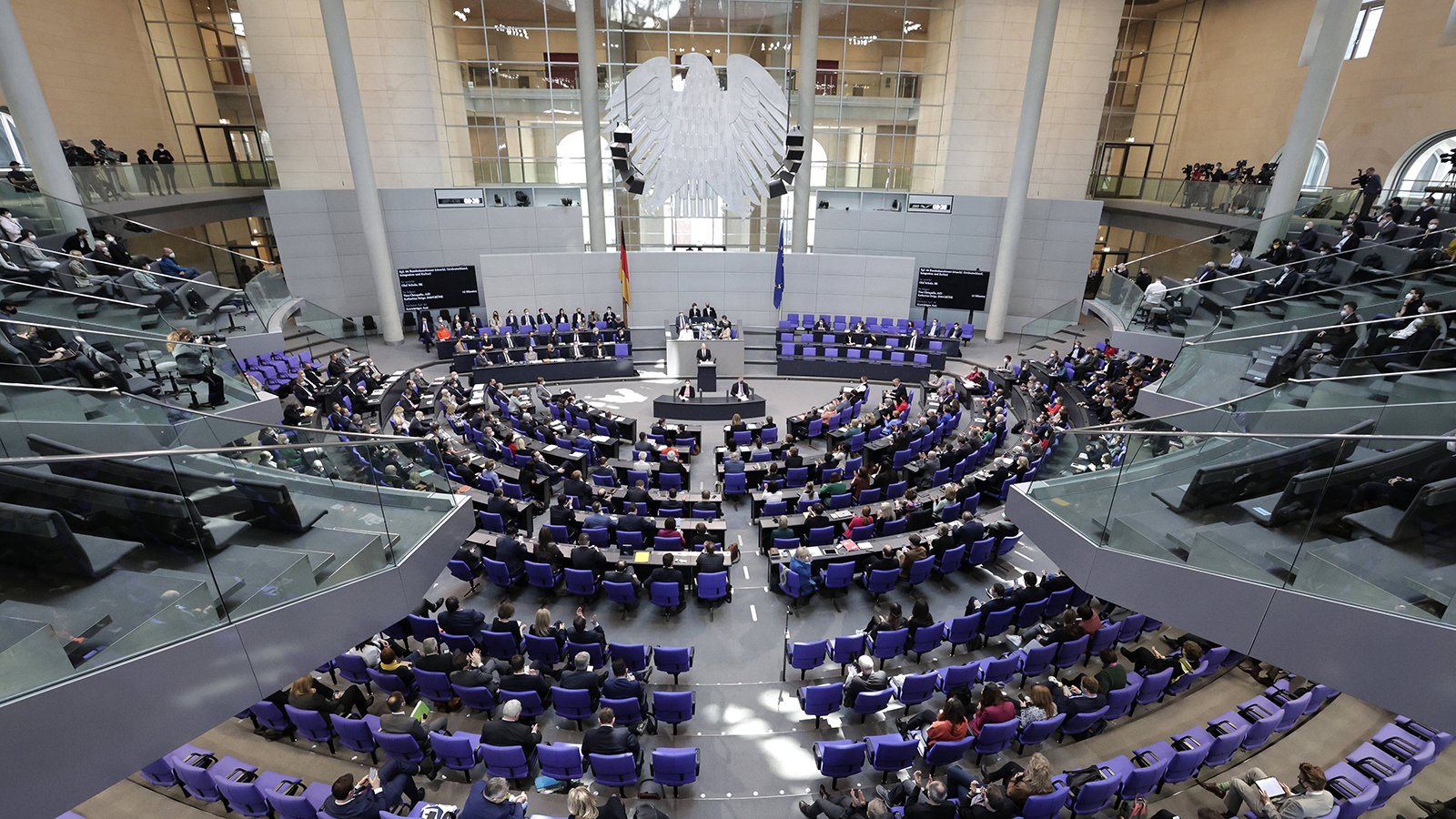Germany needs politicians with a migration background
The Bundestag and the 16 state parliaments need more elected representatives with foreign roots, says Senior Expert Dr. Ferdinand Mirbach from the Robert Bosch Stiftung's Immigration Society Team. This would strengthen coexistence in an immigration society and our democracy.
Germany is intensively discussing how to manage immigration and improve integration. This debate could be enriched by the many citizens who arrived long ago and have become part of German society – the millions of once so-called "guest workers" of the 1950s and 1960s and their descendants, as well as the immigrants of more recent decades. But the reason they are not more vocal is that they are significantly underrepresented in politics, as a new study by the Munich University of Applied Sciences and funded by the Robert Bosch Stiftung suggests.
While 30 percent of German citizens directly or indirectly have foreign roots, only 11 per-cent of the members of the current Bundestag have a migration background – and on average only 7 percent in the country’s 16 state parliaments, according to the “REP-CHANCE” study. Three regional elections that have taken place since the data was compiled have not changed this picture. In the parliaments of Thuringia and Saxony, the share of representatives with foreign roots has stagnated, while in Brandenburg it has fallen.
The “Repchance” project sees researchers conduct a comparative study across five different European countries to establish which factors promote or hinder the political or social careers of people with a migrant background.
Citizens who feel unrepresented are dissatisfied and can distrust democracy
Underrepresented groups are a problem for democracy, a form of government founded on the principal that all sections of the population – regardless of ethnic background, religious belief, or color of skin – have fair access to political office so that their interests can be represented. Democracies that tolerate underrepresentation signal that some sections of society are not as important as others. Citizens who feel they are not being represented in political discourse and processes have been shown to be dissatisfied with democracy and even to start distrusting it.
This raises the urgent question why so few German citizens with migrant backgrounds enter politics – and why many of them do not succeed in the long run. The Munich University of Applied Sciences interviewed elected officials and came up with several reasons: start-up problems thanks to a lack of resources and personal networks, and disadvantages in education and training; experiences of racism and worries about increasing public hostility towards public officials and elected representatives, especially those with a migration backgrounds; little willingness by political parties to recruit people with foreign roots and support their political ambitions.
"Our goal should not simply be to make German parliaments more "colorful," but to make them better."
Political parties are part of the problem and must become part of the solution
But parties can also become part of the solution. They need to promote members with migrant backgrounds and help them network – also by highlighting the success of existing officials with similar family histories. Party leaders must model the right values, fight internal discrimination, and hold party members accountable. Commitments like the Green Party's Diversity Charter can help to position the party externally and set the right tone internally. Party leaders should also end any tokenism that instrumentalizes "quota migrants". Agriculture Minister Cem Özdemir was first elected to the Bundestag in 1994 and long celebrated as the first MP with Turkish roots. As late as 2005, he complained: "When I say, 'we Germans,' everyone does a double take."
Parties can no longer limit the responsibility of politicians with foreign roots to issues involving migration. They have to recognize and promote the professional expertise of these politicians, just as they do for other party heavyweights. They cannot ignore politicians with foreign roots when candidates are nominated for elections – or relegate them to lowly positions on party lists. After the 2021 elections, the Social Democrats were proud of the fact that 17 percent of their MPs had a migration background, 7 percentage points more than in 2017 and "more [...] than in the Green Party." But the truth is that many of them had been given list positions considered hopeless, only making it into parliament thanks to an unexpectedly strong showing by the SPD.
"When I say, 'we Germans,' everyone does a double take."
German voters with foreign roots are becoming an ever-bigger electoral factor
As idealistic as these new practices may appear, they should ultimately be driven by hard political calculations. According to the Federal Statistical Office, the proportion of voters with a migration background rose from 10 percent in the 2017 national election to 14 percent in 2021 – and this share should keep rising as naturalizations continue and the German-born children of immigrants reach adulthood. The election-day influence of voters with foreign roots looks set to increase significantly – and numerous sociological studies show that voters of this kind are more likely to vote for political parties that are fielding candidates from their own community.
In addition to sticking with classic German politicians named Müller, Vogel or von Notz, political parties will also need more surnames like Özdemir, Ziemiak or Özoğuz on their electoral lists. Their goal should not simply be to make German parliaments more "colorful," but to make them better. Members of parliament with migrant backgrounds have experience and expertise that can enrich public debate – about all areas of policy. They may be good advocates for migrants, but they can also make excellent ministers of agriculture and more. Germany is a heterogeneous society that depends on immigrants. Its highest democratic institutions must reflect this fact.

